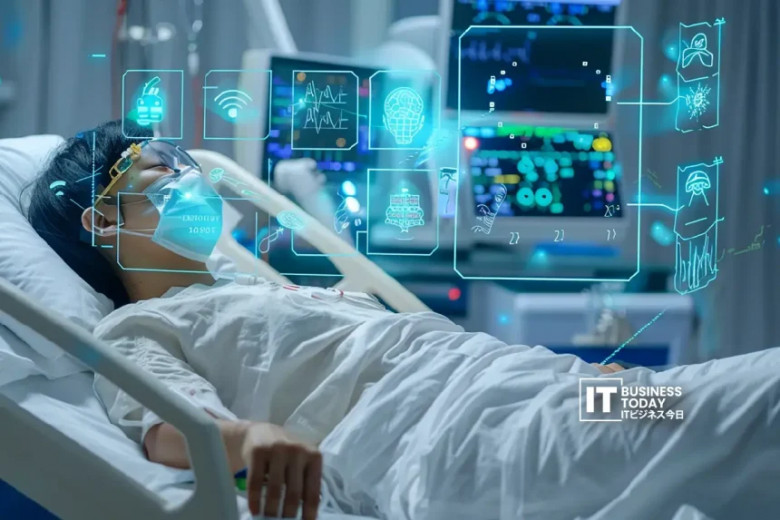views
Japan, a nation known for its advanced robotics, precision engineering, and aging population, is now leading a silent but profound transformation in global healthcare through artificial intelligence (AI). From early diagnostics and predictive analytics to robotic surgery and patient personalization, AI is rapidly becoming the central nervous system of Japan’s medical innovation.
As the country grapples with a rapidly aging society—where over 29% of the population is aged 65 and above—AI is no longer optional. It’s essential. Japan is leveraging its strengths in technology to reimagine care delivery, streamline hospital systems, and empower patients with better health outcomes.
Get More Details- https://itbusinesstoday.com/tech/japans-ai-powered-healthcare-transforming-patient-care/
🧠 AI Meets Healthcare: A Perfect Match for Japan
Japan faces a complex healthcare challenge:
-
An aging population with increasing chronic conditions
-
Shrinking rural medical workforces and overburdened urban hospitals
-
Rising healthcare costs despite universal coverage
Artificial intelligence addresses these hurdles by enabling smarter, faster, and more accurate medical decision-making. AI systems assist doctors, support caregivers, and make high-quality care accessible even in underserved regions.
⚙️ Core Areas Where AI Is Reshaping Japanese Healthcare
1. Early Diagnosis and Disease Detection
AI-driven imaging tools are outperforming human radiologists in certain diagnostic tasks. Algorithms trained on vast datasets can detect:
-
Lung cancer from CT scans
-
Breast cancer from mammograms
-
Alzheimer’s disease from subtle brain patterns
-
Diabetic retinopathy from retinal images
Institutions like RIKEN, Fujifilm Healthcare, and Tokyo University Hospital are deploying AI-powered tools that cut diagnostic times by up to 50% while maintaining high accuracy.
2. Predictive Analytics and Risk Stratification
Japan’s national health data repositories allow AI to analyze longitudinal data and predict:
-
Which patients are likely to be readmitted
-
Who may develop heart disease or diabetes
-
Which treatments are most effective for specific genetic profiles
This enables personalized care plans that are preventive rather than reactive.
3. Robotic Surgery and Smart Operating Rooms
Advanced surgical robots—powered by AI and guided by high-precision sensors—are being used for minimally invasive procedures in orthopedics, urology, and oncology. Systems like da Vinci and Japanese-developed Hinotori enhance surgical precision and shorten recovery time.
4. Virtual Health Assistants and Chatbots
AI-powered medical assistants are now used by hospitals and insurers in Japan to provide:
-
24/7 symptom checking
-
Medication reminders
-
Appointment booking
-
Health advice in multiple languages
Elderly patients in remote villages use voice-enabled bots developed by companies like Panasonic AI Lab and LINE Healthcare to manage their chronic illnesses and communicate with physicians.
5. Drug Discovery and Genomic Research
Japanese pharmaceutical firms are deploying AI for drug target identification, protein structure modeling, and clinical trial optimization. Tools like DeepMind AlphaFold and BioSymphony have helped reduce time-to-market for new treatments.
🏥 Hospitals of the Future: Japan’s Smart Healthcare Ecosystem
Japan’s hospitals are evolving into AI-integrated care hubs. Smart hospitals leverage:
-
AI triage systems for ERs
-
Predictive bed management algorithms
-
Robotic logistics (medication delivery, waste disposal)
-
Augmented reality (AR) for training medical students
Hospitals like Keio University Hospital and Osaka University Medical Center are deploying AI dashboards to monitor real-time hospital performance, patient vitals, and even infection control.
🧬 Personalized and Preventive Healthcare
With AI-enabled genomic analysis, Japanese doctors are now moving from one-size-fits-all treatments to personalized therapies based on:
-
Genetic makeup
-
Lifestyle patterns
-
Environmental exposures
For instance, cancer patients can now receive therapies matched to their tumor’s genetic profile, increasing effectiveness and reducing side effects.
Wearable devices integrated with AI systems monitor heart rates, sleep patterns, and glucose levels—offering predictive alerts to both users and doctors.
🚑 Bringing Healthcare to the Underserved
Rural areas in Japan often suffer from a lack of specialists. AI bridges this gap through:
-
Remote diagnostics and consultations via telehealth
-
Portable AI devices for home-based vital monitoring
-
Drone deliveries of medication coordinated by AI logistics platforms
Projects like the Smart Village Health Initiative are using AI and IoT to offer basic healthcare services in remote areas like Hokkaido and Okinawa.
🛡️ Regulatory Framework and Ethics
Japan’s Ministry of Health, Labour and Welfare has introduced clear AI medical device approval pathways, data anonymization standards, and ethical guidelines. Hospitals and tech firms must ensure:
-
Transparency in algorithmic decision-making
-
Protection of patient data under the APPI (Act on the Protection of Personal Information)
-
Bias mitigation in AI training datasets
Ethics councils and regulatory sandboxes allow safe, iterative development of AI health tech while protecting patients’ rights.
🌐 Public-Private Collaborations Fueling Innovation
Japan’s healthcare transformation is driven by strong collaboration among:
-
Government bodies like the Digital Agency of Japan
-
Research institutes like RIKEN and NIBIOHN
-
Tech giants such as NEC, Fujitsu, and SoftBank
-
Startups like CureApp (digital therapeutics), Medmain (AI diagnostics), and Ubie (AI symptom checker)
These partnerships are supported by funding schemes and policy reforms aimed at accelerating medical innovation.
🔮 What the Future Holds: AI-Powered, Patient-Centered Care
By 2030, Japan aims to build a national AI medical platform integrating:
-
EHRs (electronic health records)
-
Genomic data
-
Wearable device inputs
-
Real-time health metrics
Patients will control their health data through secure digital IDs, enabling personalized treatment wherever they go.
Emerging technologies like digital twins, emotion-detecting AI, and autonomous elder care robots will further enrich the ecosystem.
Browse to Related Articles - https://itbusinesstoday.com/topic/knowledge-hub/staff-writers/
✅ Conclusion: Human-Centered AI, Powered by Precision and Compassion
Japan’s AI-powered healthcare transformation is a blend of technological excellence and cultural empathy. In a society that values both innovation and elder care, AI is not replacing doctors—it’s amplifying their capabilities, relieving system stress, and bringing healthcare to those who need it most.
As the rest of the world watches, Japan is proving that with the right vision, policy, and collaboration, AI can create a healthcare system that’s smarter, safer, and more humane.
Know more - https://itbusinesstoday.com/




Comments
0 comment